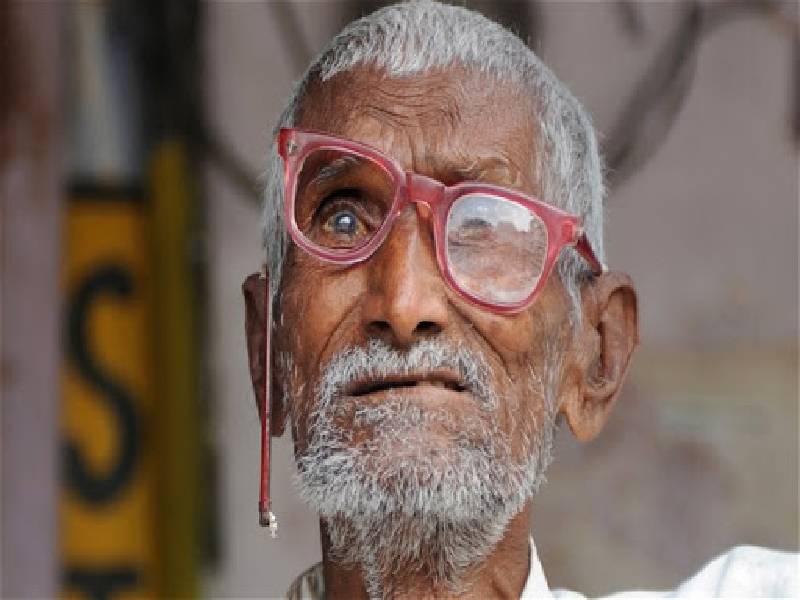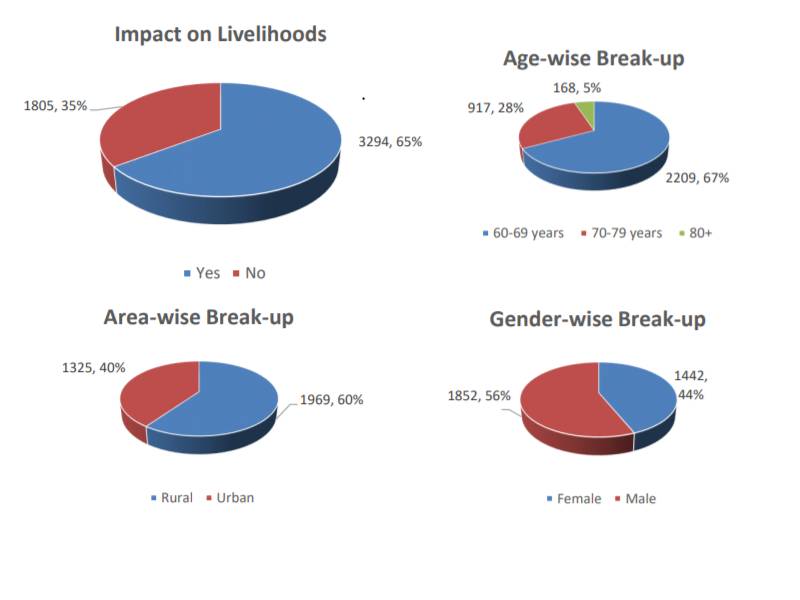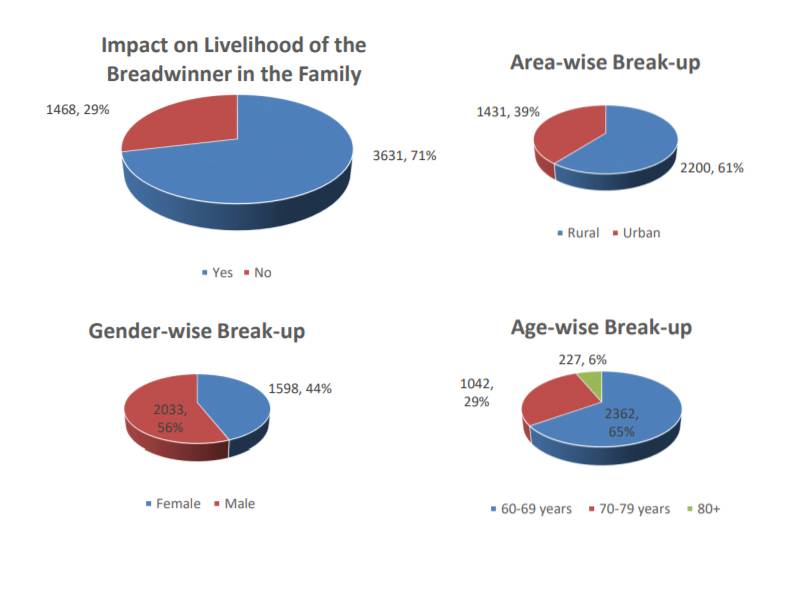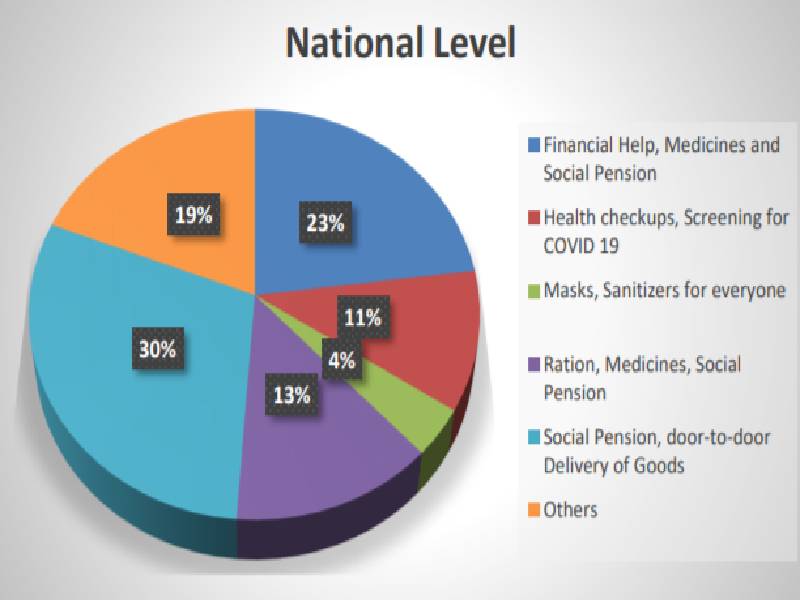COVID-19 impact: Pandemic hits livelihoods of 61% of India's elderly people
By Sumit Jha
Hyderabad: The lockdown has hit the livelihood and income of 65 per cent of the country's elderly people, according to a survey conducted by HelpAge India.
In June 2020, HelpAge India undertook a dipstick survey to assess the impact of the COVID-19 pandemic and the lockdown on the lives of the elderly. The survey was designed to study the impact on their livelihood and income."The respondents were either getting a pension from the state or working in the fields. The lockdown has indirectly led to a loss of their income," said Mohammed Raza Mohhamed who heads HelpAge India, Telangana.

Sixty per cent of the respondents who said the pandemic and the lockdown had affected their livelihoods were from rural areas while 40 per cent were from urban areas. Meanwhile, 56 per cent of them were male. Sixty-seven per cent of the respondents were in the "young-old" category, i.e. between the age of 60-69, 28 per cent were in the "old-old" category (between the ages 70-79), and five per cent were in the "oldest" category (80 years and above).
"In the likelihood of limited mobility due to higher risk, lack of digital literacy, the opportunities of earning a decent wage for the elderly is likely to shrink. Those elderly whose family member has been infected, are likely to face double jeopardy," The report said.
The survey covered 5,099 elderly respondents - 2,639 urban respondents and 2,460, rural respondents - in 17 states and four Union territories. Also, 57 per cent of the respondents were male and 43 per cent were female.
Mr. Mohammed said that not all elderly people are the breadwinners of their families. Many depend on younger family members. Seventy per cent respondents said the livelihood of the breadwinner of their family was impacted by the pandemic. Sixty-one per cent of those impacted were from rural areas and 56 per cent were male. Sixty-five per cent were aged between 60-69 years, 29 per cent between 70-79 years and six per cent were above 80 years old.

"Loss of not only their own but also the loss of the job of the breadwinner in the family impacted these elderly in various ways. They started to think that they had become a burden to their families. Some were abused by their family members. The presence of the breadwinner inside the house also made some feel inferior causing their health to deteriorate," said Mr. Mohammed.

Also, 60 per cent of the respondents stated social pension as their top need, while 50 per cent wanted medical and healthcare needs to be addressed. Another most voiced demand was the increase in doorstep delivery of essential goods and services, particularly food and medicines."I live with my spouse, both of us are having mobility issues and also we are at risk of getting infected, so it would be better for us if someone delivers the essential item," Said a respondent in the report.
"In the face of financial difficulties, the elderly, particularly women, ignore or neglect their treatments for health conditions like hypertension and diabetes because their family cannot afford it. Apart from health, they require essential goods and service. So, we try to step in and help these elderly people," said Mr. Mohammed.